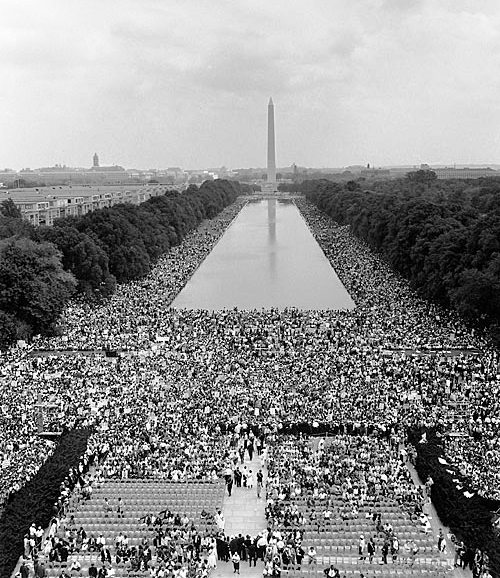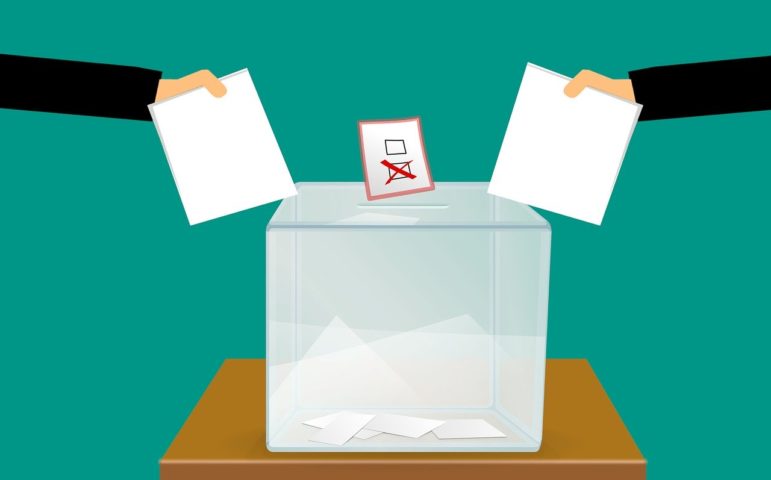
The current trifecta of pandemic, economic recession, and social unrest can easily obscure the positive aspects of current everyday living. In September, my thoughts normally would turn to our local Pagan Pride celebrations; however, like so many other events, they are cancelled.
A good friend’s wedding was moved from a standard large venue to a park after the first location never opened after COVID closure in March. Instead of 200 guests, the couple had a limit of 25 carefully selected family members who were willing to be outside. Everyone else watched via a livestream. While it was one of the most beautiful ceremonies I’ve seen, the reality of life in 2020 consistently reminds us that what we have taken for granted often is now out of reach.
As we approach the second harvest sabbat of Thesmophoria and the start of fall, the call of the ancestors grows stronger. The chaos and turbulence in 2020 has often been compared to 1968. I miss the wisdom and measured understanding of certain loved ones, like my parents. I wonder what they would say now, during these times when the very fabric and foundation bends, stretches, tears, and, at times, breaks free in our hands. In their twenties and thirties, they protested, attended marches, and contributed to their generation’s ability to shift the United States into facing its crisis in civil rights, women’s rights, and gay rights.
In the current bleak economic and housing situation, what we need now is the push to keep going, despite what look like very dark and dreary times. Many are drained. Faith, compassion, and clarity are more important than ever during a time of crisis. The daily news details the spiritual, psychological, and emotional miasma that clogs our ability to see a way out. It is hard to see through the lens of faith, compassion, and clarity, however, when most are concerned with the basic need of safety.
We are living in brief vignettes born of sustained crisis. The pandemic builds pressure with no relief.
During a recent work meeting, my boss asked a virtual room of fifty people: “How are you doing? There was silence for over a minute before someone bravely unmuted and confessed: “Okay, given the circumstances.” Everyone nodded in agreement.
No one typed in chat or said aloud what many had passed around in private text messages: we do not feel safe. We have purpose: we work for an educational system, yet the trifecta of a pandemic, economic collapse, and social unrest has taken the wheels off the smooth ride of day to day living.
The long pause said a lot to me. In my day job, I nurture and help others navigate the waters of the educational system, yet the effects of the pandemic and reality mean that the the fight to stay upright remains difficult at best. For comfort and solace, I look to my parents and their generation: the Silent Generation.

The 1963 March on Washington for Jobs and Freedom [public domain]
The Silent Generation taught us how to handle this time of uncertainty through the unwavering ability to place one foot in front of the other and keeping to a set goal and path. This generation, born in the years just before and during the Great Depression, fought as youth in the 50s and 60s in the Civil Rights movement. They led the battle for racial equality, followed by women’s rights, and later, the start of rights for all LBGTQ folk.
Ironically, the same battles facing Generations Alpha, Z, and the Millennials resonate with shades of past turmoil from the 50s and 60s. Many of the youth who responded to the call were under 30 and ahead of their time in choosing to challenge a status quo that did not fit the emerging future.
We don’t speak much about this group of people who have worked very hard for the stability of societies worldwide, especially throughout the 1950s and 1960s. Many are in their eighties or nineties now. They are not immediately well-known, like their predecessors, the Greatest Generation, or the Baby Boomers who came after them. They simply did the work.
In many ways, Millennials and members of Generations Z and Alpha are the new “Silent” generation. In the future, their names will be as well known as Martin Luther King Jr, Barbara Gittings, Harvey Milk, John Lewis, Heather Booth, Marsha P. Johnson, and Barbara Jordan.
In 2020, I look to the Silent Generation for guidance as to how to navigate the current chaos. So many of these individuals we may never know because they simply kept moving and did the work in tiny acts. While we recognize now that this was, as John Lewis said, “good trouble,” but for all of the Silent Generation, it just was living out the values of a good life.
As the current generations fight for what matters now, it is the small gestures that can have the most impact. Because we may not feel safe in our environment, we may feel that we do not have power. As individuals, we can empower each other by providing emotional and spiritual support to one another. We can choose to join households when there is not enough money coming in to live separately.
We can strengthen our selves and our families through the time we spend with one another, cooking as a family, and making our own entertainment. Think of how many short home grown videos have popped up on TikTok that give people around the world pleasure at seeing what others are doing.
We can grow food in our kitchens and backyards to nourish ourselves. These are the 2020 version of Victory Gardens, even though we are not in an active world war.
We can build a sense of safety by re-establishing community in smaller forms. Instead of large cities and towns, we have families and parts of neighborhoods. We have the people with whom we choose to share spaces and experiences. We can use video conferencing to connect with family, friends, co-workers, bosses, community town hall meetings or city council meetings when we can’t be there in person. We can livestream or attend Zoom weddings, happy hours
We can choose to donate our time and resources for the good of the larger society as a whole.
We can use our skills to bring a larger message to the world, as the actor Chadwick Boseman did in his films. While his death from colon cancer at age 43 is a sad event, yet what hits even more is his stature as a role model and living definition of how to maintain a purposeful life. His roles in 42, Get on Up, Marshall, and Black Panther demonstrate how a life with singular purpose can be satisfying.
We can vote.

[Pixabay]
The Voting Rights Act was signed into law in August, 1965. As members of the Silent Generation, my parents would have known of those whose right to vote was inhibited or denied through means that were common in the 1950s and early 60s when they would have been eligible to vote, which was then 21 years of age. Thanks to the activism in the late 1960s, the voting age was lowered to eighteen in 1971.
To those who fought for the right for all to vote, the act of casting a ballot has never been optional. My parents were election judges at at time when voting was seen not just as a civic duty, but as an honor. In many cases, they worked the same polling place as they represented different parties. As a result, I grew up with the notion that voting was not only a civic duty, but quite romantic. What can be more attractive than spending time with a partner who shares similar beliefs in terms of civic engagement?
The current climate has the entire voting process under attack because one thing is clear: Voting is a small step that can create great change.
People have fought and died for the right to vote. In certain parts of the world, elections are a sham front to provide the veneer of reaffirming that citizens are satisfied with the same leader. From the outside world, this leader may be considered a dictator with an authoritarian government, regardless of the appearance of elections.
The term “free and fair” elections is not just a slogan or something to be taken for granted or lightly. The reason that the voting process is attacked so heavily in a variety of countries is because of the possibility for great change.
In the year 2020, democracy itself is on the ballot in the United States of America. We are an experiment that has inspired other nations through the U.S. Constitution, the Declaration of Independence, and peaceful transition of power from one president of the United States of America to the next. This is especially important in 2020 as Mercury Retrograde ends in the morning on Election Day, November 3.
When I think of what will make me feel safe, I may not know the large long-term goals, but I can call upon the wisdom of my ancestors, and those still living from the Silent Generation. Take things one step at a time. Pray. Do the right thing even when it may be scary. Grow some vegetables. Cook and share a meal with family. Enjoy the simple everyday joys.
Vote.
It is a small step.
It is our voice. It is a way to honor those who came before us, creators of and participants in democracy; it is a way to honor those who came before us who were not able to participate due to race or gender or age; it is a way to honor this who came before us whose country of residence was not a democracy; it is a way to honor our citizen selves.
Vote.
The Wild Hunt always welcomes guest submissions. Please send pitches to eric@wildhunt.org.
The views and opinions expressed by our diverse panel of columnists and guest writers represent the many diverging perspectives held within the global Pagan, Heathen, and polytheist communities, but do not necessarily reflect the views of The Wild Hunt Inc. or its management.
The Wild Hunt is not responsible for links to external content.
To join a conversation on this post:
Visit our The Wild Hunt subreddit! Point your favorite browser to https://www.reddit.com/r/The_Wild_Hunt_News/, then click “JOIN”. Make sure to click the bell, too, to be notified of new articles posted to our subreddit.